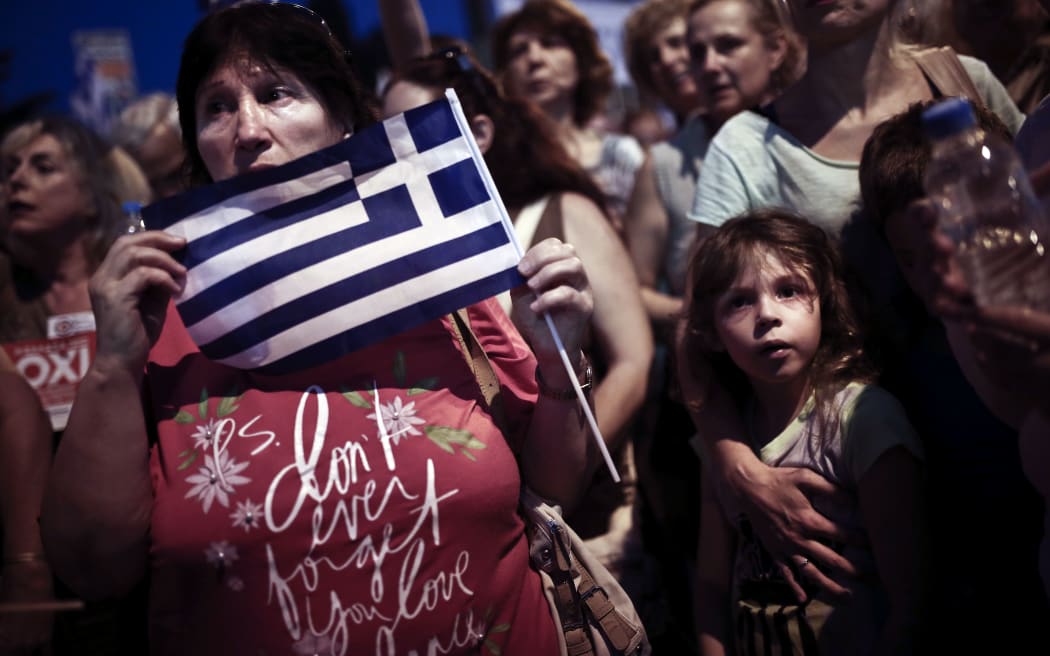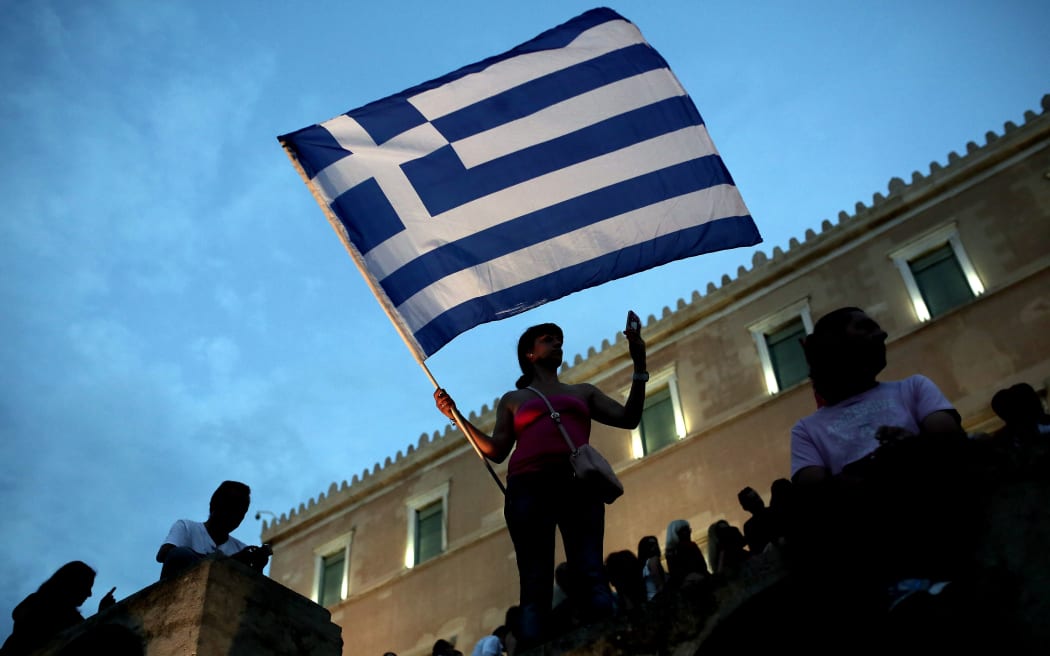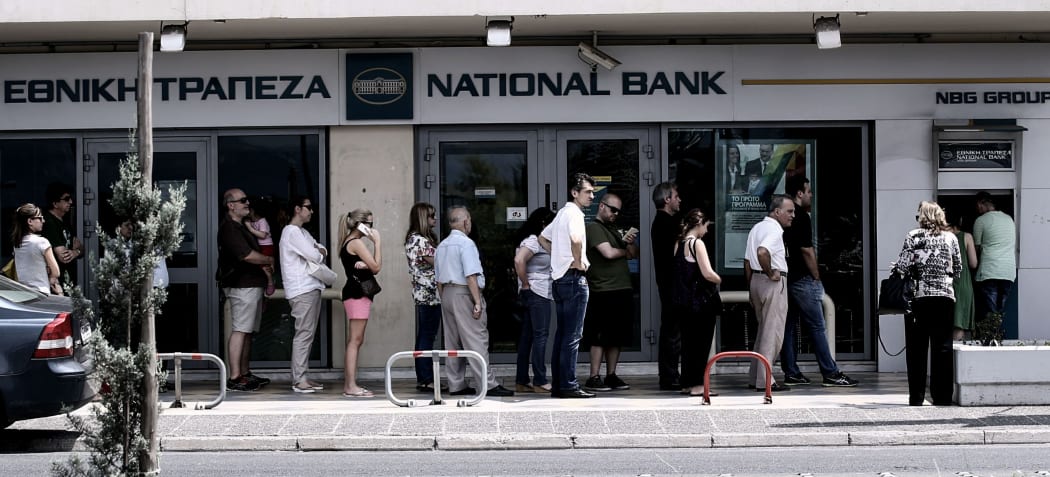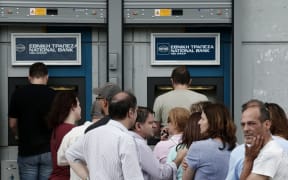Greece made last-minute overtures to its international creditors for aid but it was not enough to save the country from default on loans with the International Monetary Fund (IMF).

Protesters in Athens on 29 June after creditors at the weekend refused to extend the country's bailout. Photo: AFP
The IMF on Tuesday confirmed Greece had not made its €1.5 billion loan repayment making it the first advanced economy to ever be in arrears to the fund.
The missed payment, the largest in the fund's history, is equivalent to a default, in that both imply a breach of Athens' obligations.
IMF spokesman Gerry Rice said Greece could only receive further IMF funding once the arrears are cleared. Mr Rice confirmed Greece had asked for a last-minute repayment extension earlier on Tuesday, which the Fund's board would consider "in due course."
Key events:
- IMF confirms Greece fails to make €1.5 billion repayment.
- Greece becomes first developed country to be in arrears to IMF
- Greece asked for new two-year €29.1bn aid deal
- Euro zone finance ministers to discuss latest loan request
Just hours earlier, the Greek government asked its European partners for new aid and offered to scrap a referendum in an attempt to lure creditors back into talks. Sources said the offer was made by Finance Minister Yanis Varoufakis on a call with euro zone colleagues.
The Greek government's overtures were too late to prevent the country's current bailout from expiring, meaning Athens would forfeit €15.3 billion in frozen funds.
And German Chancellor Angela Merkel ruled out further negotiations until after Sunday's referendum that Prime Minister Alexis Tsipras has called on further bailout terms.
However finance ministers said they would confer on Wednesday over Greek Prime Minister Alexis Tsipras' latest loan request, effectively coming back to the negotiating table.

Photo: AFP
Amid fears of default and a possible exit from the euro, long queues of people were continuing to snake from many cash machines in Greece, where withdrawals are capped at just €60 a day.
The European Commission (EC), which is one of Greece's creditors, wants Athens to raise taxes and cut welfare spending.
The referendum due to take place on 5 July will ask whether the country should accept creditors' proposals made last week - which Mr Tsipras has told Greek voters to reject.
EU leaders have warned that a rejection would mean Greece leaving the euro zone - though Mr Tsipras says he does not want this to happen.
The EC says that if funds were to be released, Mr Tsipras and his party must back the "yes" vote in the referendum.
In what seemed like an effort to soften lenders, Mr Varoufakis indicated during the call with euro zone colleagues that his government might change its stance on the referendum.
Mr Varoufakis said the Greek government was open to either call off the vote or change stance and recommend a "yes" vote if a deal were reached, Reuters reported, citing euro zone sources. A Greek official said that, as of late Tuesday, there were no changes to the planned referendum.

Queues at an ATM machine over the weekend. Photo: AFP
- BBC / Reuters





